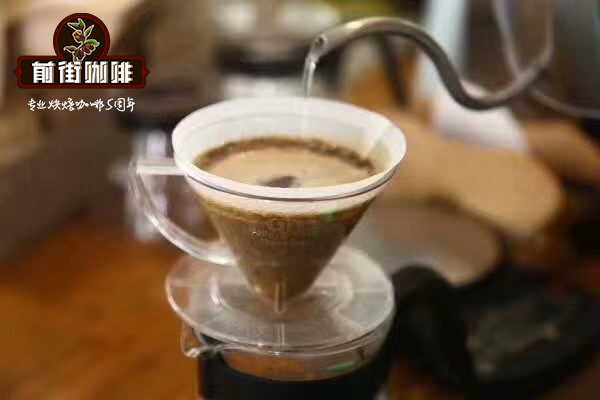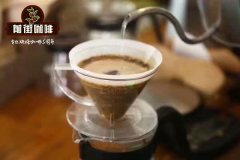What is boutique coffee? Is the flavor difference between commercial coffee and boutique coffee obvious?

Professional coffee knowledge exchange more coffee bean information please follow the coffee workshop (Wechat official account cafe_style)
Qianjie-brief introduction of Commercial Coffee and Fine Coffee
As a proper term, boutique coffee (specialty coffee) was first put forward by Ms. erna knustsen, who is known as the godmother of boutique coffee, in the Tea and Coffee monthly (tea& coffee trade journal) in 1974, which showed that "only in the most favorable microclimate and soil and water can we cultivate boutique coffee with unique flavor". The aim is to distinguish it from the commercial coffee in New York futures market.
In 1972, Ms. Knudsen and six others, including donald n. Schoenholt, co-founded the American boutique coffee association scaa (specialtycoffee association of america), and the word "specialtycoffee" became a global language. Knudsen has always been opposed to the coffee industry blindly pursuing the invariance and monotonicity of flavor with low-cost formula beans, ignoring the unique "terroir" of coffee from different producing areas, that is, different soil, variety, climate, and soil and water, resulting in different coffee flavor, which is the soul of fine coffee. Without the unique regional flavor, it is not fine coffee, but ordinary commercial beans or canned coffee (large canned coffee beans or powder).
Boutique coffee does not refer to the boutique of coffee, although it does taste better than ordinary coffee. It means that only those coffee beans that exceed a certain standard (such as 85 points) after being scored by professional tasters (cup testers) can be called boutique coffee, and they can be traced back to planting manors, treatment plants, batches, planting height, treatment methods and so on must be transparent.
Ms. Knudsen first put forward the concept of boutique coffee, emphasizing the relationship between upstream planting environment and coffee quality. Today, the American Fine Coffee Association has redefined the concept of boutique coffee:
Carefully select the most suitable variety and plant it in the altitude, climate, soil and water environment that is most conducive to the development of coffee flavor. Careful washing and sun processing, select the most advanced raw beans without defects, and deliver them to customers with zero defects in the transportation process. After the superb craftsmanship of the roaster, it leads to the richest regional flavor, and then brews delicious coffee in a recognized way of extraction.
According to this definition, the connotation of fine coffee not only includes the most core factor of planting environment, but also includes three key processes: raw bean treatment process, baking process and extraction (brewing) process. In short, boutique coffee should be a high-quality coffee with "good raw beans, good roasting and good extraction".
The so-called commercial beans generally refer to the purchase of a large number of raw beans in the same producing area, taking beans in the sun, less work, short time, high output, low quality of commercial coffee beans, high defect rate, low price is its advantage, in terms of price, high-quality coffee beans are several times more expensive than commercial beans, from a cost point of view, the profit space of choosing commercial beans will be larger.
Knowledge: in terms of coffee flavor, the taste of coffee obtained from commercial beans is much lower than that of high-quality coffee beans. Generally, commercial beans are chosen to be used for blending. After mixing beans, they can be used to make Italian coffee such as lattes and kapos.
In short: Qianjie is a coffee research hall, happy to share the knowledge about coffee with you, we share unreservedly just to make more friends fall in love with coffee, and there will be three low-discount coffee activities every month. The reason is that Qianjie wants to make more friends drink the best coffee at the lowest price, which has been Qianjie's tenet for 6 years!
END
Important Notice :
前街咖啡 FrontStreet Coffee has moved to new addredd:
FrontStreet Coffee Address: 315,Donghua East Road,GuangZhou
Tel:020 38364473
- Prev

What kind of Starbucks coffee beans tastes good? learn about Starbucks Kenya coffee.
Professional coffee knowledge exchange more coffee bean information please follow the coffee workshop (Wechat official account cafe_style) front street-Starbucks Kenya Coffee about Kenyan coffee beans, usually with a wonderful fruit flavor, taste with a BlackBerry and grapefruit flavor, or sweet and sour citric, aromatic, full-bodied, fruity aroma. Even, if you cooperate,
- Next

Is Fine Coffee defined as the Fine Coffee in Coffee? what kind of coffee should speak on the basis of results?
Professional coffee knowledge exchange more coffee bean information please follow the coffee workshop (Wechat official account cafe_style) front street-boutique coffee introduction the American Fine Coffee Association pointed out that through the comprehensive cup test (blind test) score of more than 80 points can be defined as boutique coffee beans, if the blind test score of less than 80 points, then classified as commercial beans. In 1978, Ms. Knudsen was in Montebourg, France.
Related
- Beginners will see the "Coffee pull flower" guide!
- What is the difference between ice blog purified milk and ordinary milk coffee?
- Why is the Philippines the largest producer of crops in Liberia?
- For coffee extraction, should the fine powder be retained?
- How does extracted espresso fill pressed powder? How much strength does it take to press the powder?
- How to make jasmine cold extract coffee? Is the jasmine + latte good?
- Will this little toy really make the coffee taste better? How does Lily Drip affect coffee extraction?
- Will the action of slapping the filter cup also affect coffee extraction?
- What's the difference between powder-to-water ratio and powder-to-liquid ratio?
- What is the Ethiopian local species? What does it have to do with Heirloom native species?

